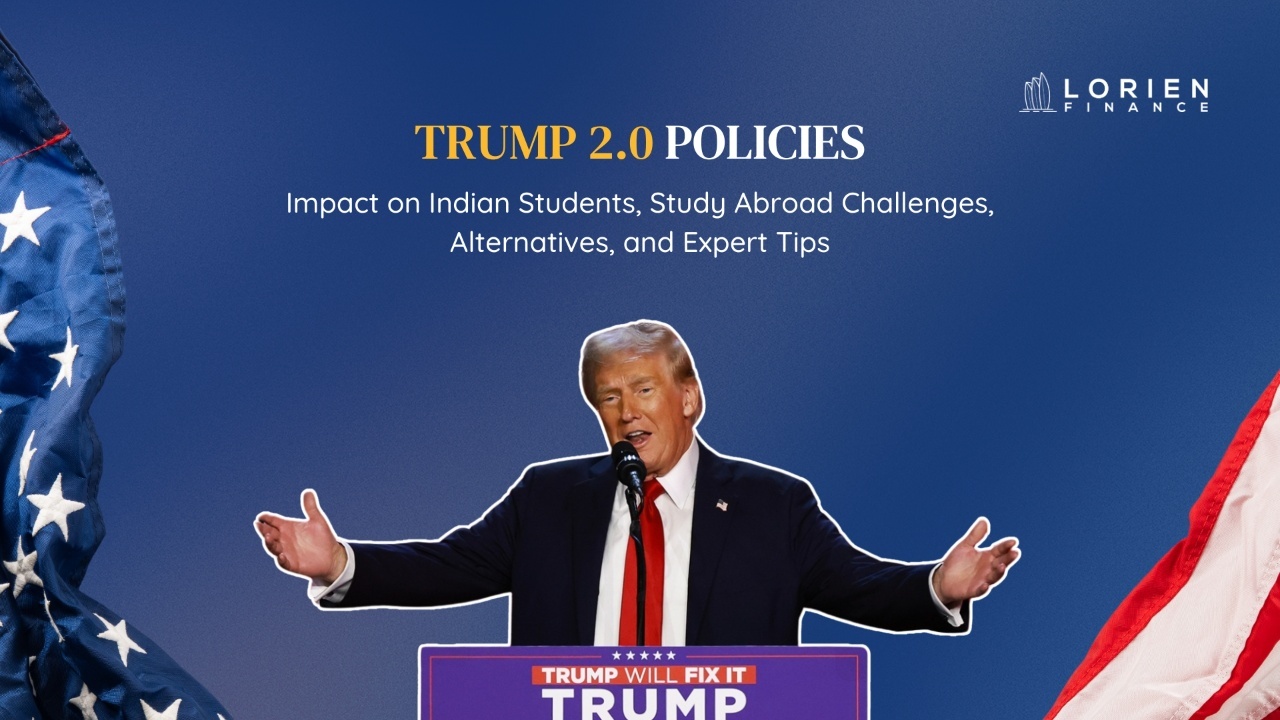List of countries to study in 2025 without IELTS

Dreaming of studying abroad but the IELTS exam is stopping you? Now, even if you can’t walk inEnglish or talk in English, here’s some good news—you might not need it at all! There are severaluniversities across the globe that understand passing an exam doesn’t prove your fluency inEnglish. If IELTS has been holding you back, now is the time to explore your options! Withnumerous pathways, you can still fulfil your dream of studying abroad without the stress of provingyou excel in English. So, get your pen and paper out, or open the notes in your phone, as we share athe top countries to study in 2025 without IELTS. United States Yes, you can study in the US without IELTS! Don’t rub your eyes! It’s not a dream. Manyuniversities accept students who have completed their previous education in English or offeralternatives like TOEFL, Duolingo, or university-specific tests. Some of these universities are: Notable Universities: University of ColoradoUniversity of ArkansasCalifornia State UniversityUniversity of DaytonDrexel University United Kingdom Home to some of the world’s most prestigious institutions, the UK allows students to apply withoutIELTS if they provide an English-medium education certificate (MOI) or take university-specificlanguage tests. Notable Universities: University of BristolUniversity of WarwickUniversity of PortsmouthBirmingham City UniversityLondon South Bank University Australia Many Australian universities accept students without IELTS if they prove their English proficiencythrough MOI certificates or take preparatory English courses before starting their main program. Notable Universities: University of QueenslandUniversity of AdelaideUniversity of New South WalesSwinburne University of TechnologyVictoria University Canada Several Canadian universities waive IELTS if you studied in an English-medium school or taketheir internal language assessment. Notable Universities: University of WinnipegBrock UniversityCarleton UniversityConcordia UniversityMemorial University of Newfoundland Germany Germany is a favourite among international students, with many public universities offering tuitionfree education. Many institutions accept alternative proofs of English proficiency, such as an MOI. Notable Universities: University of SiegenUniversity of Koblenz and LandauUniversity of Applied Sciences, MunichEsslingen University of Applied Sciences France French universities offer English-taught programs and may waive IELTS if you provide proof ofEnglish proficiency through previous education. Notable Universities: American Business School, ParisEBS ParisESAIP School of Engineers Ireland Ireland has been gaining popularity among international students, and many universities acceptalternatives to IELTS. Notable Universities: Maynooth UniversityNational University of Ireland, GalwayUniversity of Limerick Belgium With world-class institutions, Belgium offers several English-taught programs where IELTS isn’tmandatory. Notable Universities: KU LeuvenGhent UniversityUniversité catholique de Louvain (UCLouvain) Italy Italy’s renowned institutions offer exemptions from IELTS if students provide alternative proof ofproficiency. Notable Universities: University of BolognaPolytechnic University of Milan Netherlands Dutch universities offer many English-taught programs and often accept MOI certificates instead ofIELTS. Notable Universities: University of AmsterdamWageningen University & ResearchEindhoven University of Technology Sweden Several Swedish universities offer exemptions from IELTS based on prior education or alternativeassessments. Notable Universities: Lund UniversityUppsala UniversityStockholm University Norway Public universities in Norway offer English-taught programs and waive IELTS for students whomeet their English proficiency requirements. Notable Universities: University of OsloNorwegian University of Science and Technology (NTNU) Malaysia Malaysia’s affordable education system attracts thousands of international students, and IELTSwaivers are commonly granted Notable Universities: University of MalayaTaylor’s University Poland Many universities in Poland allow students to apply without IELTS if they have studied in Englishbefore. Notable Universities: Jagiellonian UniversityWarsaw University of Technology New Zealand Some New Zealand universities accept alternative English proficiency tests or MOI. Notable Universities: University of AucklandVictoria University of Wellington Alternative Ways to Prove English Proficiency If you’re applying to top countries to study in 2025 without IELTS, you’ll need to prove yourEnglish skills in other ways, such as a Medium of Instruction (MOI) Certificate, a document fromyour previous academic institution confirming that you completed your education in English. FAQs Is it possible to study abroad without taking the IELTS exam? Yes, many universities worldwide accept alternative proof of English proficiency, such as MOIcertificates, university-specific tests, or other English language exams. What is a Medium of Instruction (MOI) certificate, and how does it help in the admission process? An MOI certificate is a document from your previous educational institution stating that youreducation was conducted in English. Many universities accept this in place of IELTS. Are there any risks associated with studying abroad without an IELTS score? While many institutions accept alternatives to IELTS, some visa processes may still require anEnglish proficiency test. It’s always best to check university and visa requirements before applying. Which countries have the most universities offering admissions without IELTS? Countries like the USA, UK, Germany, Canada, Australia, and Ireland have multiple universitiesthat allow admissions without IELTS. Can I get a student visa without IELTS? In many cases, yes! However, some countries may still require proof of English proficiency for visaprocessing. Always verify with the embassy before applying.
Top Student Loan Mistakes to Avoid while Studying Abroad

Planning to study abroad in 2025? As much as studying abroad sounds exciting and an opportunityof a lifetime, there are numerous processes to be fulfilled before you start your journey. The majorconcern for study abroad aspirants? Financing their journey. Securing an education loan can be oneof the top options these students opt for studying abroad, but missteps here can lead to increaseddebt and financial strain. Let’s delve into common education loan mistakes to avoid for students. Insufficient Research and Planning Don’t even think of diving into the world of loan agreements without thorough research! It’s arecipe for future financial distress. It’s imperative to understand the terms, interest rates, repaymentschedules, and any hidden charges associated with the loan. Utilising tools like education loan EMIcalculators can provide clarity on future financial commitments. Over-Borrowing While it might be tempting to borrow the maximum amount offered, one of the most common education loan mistakes to avoid is taking more than necessary which can escalate your debt burden. Assess your actual educational expenses—tuition, accommodation, books—and borrow accordingly. Remember, every extra dollar borrowed accrues interest, increasing the total repayment amount. Neglecting Scholarships and Grants Many students overlook scholarships, grants, and bursaries that can significantly offset educationalcosts. Diligently researching and applying for these opportunities can reduce reliance on loans,thereby decreasing future debt. Opting for Private Loans Prematurely Private loans often come with higher interest rates and less flexible repayment options compared tofederal or government-backed loans. It’s advisable to exhaust all federal loan options beforeconsidering private lenders to ensure more manageable repayment terms. Misunderstanding Loan Terms Not all loans are created equal. Some may have variable interest rates, while others might offerfixed rates. Understanding the nuances of your loan agreement, including grace periods, defermentoptions, and interest accrual, is crucial to avoid unexpected financial challenges. Ignoring Interest Payments During Studies For unsubsidised loans, interest starts accruing from the day of disbursement. Ignoring these interestpayments during your study period can lead to a substantial increase in the total loan amount due tocapitalisation. Making small, regular interest payments while studying can prevent this escalation. Lack of a Repayment Strategy Entering the repayment phase without a clear plan can lead to missed payments and credit issues.Familiarise yourself with different repayment plans, consider potential income levels postgraduation, and choose a strategy that aligns with your financial situation. Overlooking the Fine Print Every loan agreement contains detailed terms and conditions. Overlooking these can result inunpleasant surprises, such as prepayment penalties or fees for late payments. Always read the fineprint and seek clarification on any ambiguous terms before signing. Delayed Repayments Procrastinating on loan repayments not only increases the interest burden but also negativelyimpacts your credit score. Setting up automatic payments or reminders can help ensure timelyrepayments, maintaining your financial health. Not Seeking Financial Advice Navigating the complexities of education loans can be daunting. Consulting with financial advisorsor counsellors can provide personalised guidance, helping you make informed decisions tailored toyour circumstances. FAQs Are there penalties for early repayment of education loans? Some lenders impose prepayment penalties. It’s essential to review your loan agreement or consultyour lender to understand any associated fees. How can I find scholarships or grants applicable to my field of study? Utilise scholarship databases, consult your institution’s financial aid office, and explore professionalorganisations related to your field for available opportunities. What should I do if I’m unable to make a loan payment? Immediately contact your lender to discuss options such as deferment, forbearance, or alternativerepayment plans to avoid defaulting. How does my credit score affect my education loan? A higher credit score can secure better interest rates and loan terms. Maintaining a good credit scoreis beneficial for current and future financial endeavours. Can I refinance my education loan? Yes, refinancing can potentially lower your interest rate or adjust your repayment term. However,assess the pros and cons, as refinancing federal loans with private lenders may forfeit certainbenefits. By being aware of these common pitfalls and proactively addressing them, you can manage youreducation loan effectively, paving the way for a financially secure future.
How to Write a Loan Extension Letter to Your Bank

Studying abroad is a dream come true for many Indian students, an experience of a lifetime, but managing finances is a crucial part of this journey. If you too are facing unexpected challenges with your study abroad loans that require more time to start your repayment, the best option is to write a well-structured education loan extension letter to the bank to seek support. Lets walk you through the process of crafting an effective letter that would help you buy some time to repay your loan! What is a Loan Extension Letter? An education loan extension letter to the bank is a formal request that you submit to your bank when you need additional time to start or continue repaying your education loan. Banks are generally understanding of genuine circumstances like: The letter should clearly explain your reasons for the extension and assure the bank of your commitment to repayment. How to Assess Your Financial Needs Before Writing the Letter? Before drafting the education loan extension letter to your bank, take the time to: This assessment helps ensure your request is both realistic and well-informed. Key Components of a Loan Extension Letter When writing the letter, ensure it includes the following details: Sample Loan Extension Letter Here’s an example you can use as a reference: Your NameYour AddressCity, State, PIN CodeEmail AddressPhone NumberDateThe Branch Manager[Bank Name][Branch Name]City, State, PIN Code Subject: Request for Education Loan Repayment Extension Dear [Manager’s Name], I hope this letter finds you well. I am [Your Name], currently pursuing [Course Name] at [University Name]. I availed an education loan from your bank under account number [Loan Account Number] to fund my studies. Due to [specific reason, e.g., “extended duration of my course” or “difficulty in securing employment”], I am unable to begin/continue repayments as scheduled. I am therefore requesting an extension of [specific duration, e.g., “six months”] to enable me to stabilise my financial situation. I assure you of my commitment to fulfilling my repayment obligations and am confident that I will be able to resume payments after this extension period. I am happy to provide any additional documents or information to support my request. Thank you for considering my application. I look forward to your positive response. Sincerely,[Your Full Name] Tips for Writing an Effective Loan Extension Letter Impact of Loan Extensions on Your Financial Future Students often worry about how an extension might affect their finances. Here’s what you need to know: Being aware of these impacts helps you make informed decisions about your finances. How Do Banks Evaluate Loan Extension Requests? Understanding how banks assess your application can help you strengthen your case: Knowing these criteria allows you to tailor your request to meet the bank’s expectations. FAQs Can I request a loan extension if my visa processing delayed my start date? Absolutely! Delays in visa processing are common for international students. Mention this in your letter and include supporting documents like a copy of the visa approval or correspondence with immigration authorities. Will I be charged additional interest during the extension period? Yes, in most cases, banks will charge interest for the additional period. However, the exact terms depend on your loan agreement. Clarify this with your bank while discussing the extension. Can I partially repay my loan to reduce the burden while requesting an extension? Yes, partial repayments can demonstrate your commitment to clearing the loan. Highlight this in your letter, as it reflects positively on your financial discipline. How can I avoid needing another loan extension in the future? To avoid opting for another loan extension in the future, ensure to plan your finances in time. Also look for part-time opportunities along with your course to help you cover living expenses. Is it better to apply for an extension or refinance my education loan? This depends on your situation. An extension is suitable for short-term challenges, while refinancing might be better if you’re struggling with high interest rates or need long-term relief. Consult with your bank or financial advisor to weigh the pros and cons. Can I extend my loan if I plan to pursue another degree abroad? Yes, you can, but the process might differ. Banks may ask for proof of admission to the new course and a revised repayment plan. Be transparent about your academic goals in your letter. Are there government schemes or subsidies that can help during repayment? Some government schemes in India, such as the Central Sector Interest Subsidy (CSIS), offer financial relief to economically weaker sections. Check if you’re eligible and inquire with your bank for details.
Trump 2.0 Policies: Impact on Indian Students

Synopsis: With Trump being re-elected as the 47th President of the United States, Indians living in the US and Indian students planning to study in the US are affected vastly. Know more about the H-1B visa problems, stricter immigration guidelines, and OPT adjustments made during Trump 2.0. November 6, 2024, marked the re-election of Donald Trump as the 47th President of the United States, a moment that has stirred significant conversations globally, particularly within immigrant communities. Known for his staunch stance on immigration and policies favouring a more restrictive visa regime, Trump 2.0 has raised new challenges for Indian nationals living in the US and those aspiring to pursue their American dream through higher education. For Indian professionals and students, the US has long been a land of opportunities, offering world-class education and career prospects. However, the renewed focus on tightening immigration policies has made these aspirations more complex, forcing many to reevaluate their plans. Let’s delve into how Trump’s policies are impacting Indians already in the US, explore the challenges faced by Indian students planning to study in the States, highlight what these students are searching online, and alternative study abroad destinations for those seeking international education. Impact on Indians in the US The reinstated Trump administration has implemented several policies affecting Indian nationals: • Repatriation of Undocumented Immigrants: In a move to strengthen diplomatic ties with the US, the Indian government plans to repatriate approximately 18,000 undocumented Indian immigrants. This initiative aims to alleviate tensions and safeguard legal immigration avenues. • H-1B Visa Program Debate: The H-1B visa, crucial for many Indian professionals, is under scrutiny. While some industry leaders advocate for its continuation to fill specialised roles, others within the administration label it as problematic, leading to uncertainty for current and prospective visa holders. Challenges Faced by Indian Students Planning to Study in the US Prospective Indian students are encountering several hurdles: • Stricter Immigration Policies: Heightened enforcement has led to increased deportation fears, especially among students engaged in part-time work. Many are reconsidering such employment to avoid potential legal issues. • Potential Changes to OPT and Visa Durations: Discussions about modifying the Optional Practical Training (OPT) program and adjusting visa durations are causing apprehension, as these changes could limit post graduation work opportunities. Students’ Voice Online With an in-depth exploration of platforms where students engage to clarify their doubts reveals that Indian students are actively seeking information on: • Policy Updates: Students are inquiring about the latest changes in US immigration and education policies under the renewed administration. • Visa Application Processes: There is a heightened interest in understanding the intricacies of visa applications, renewals, and potential restrictions. • Alternative Study Destinations: Given the uncertainties, many are exploring other countries that offer quality education and more stable immigration policies. Alternative Study Abroad Destinations Considering the challenges in the US, Indian students are looking into other countries for higher education: • Germany: Known for its quality education and affordable tuition, Germany is gaining popularity among Indian students. The country is expected to host over 400,000 international students in the 2024/25 winter semester. • France: France aims to host 30,000 Indian students by 2030, offering diverse programs and cultural experiences. • Ireland: With its English-speaking environment and robust education system, Ireland is emerging as an attractive destination for Indian students. • Netherlands: Offering a variety of English-taught programs and a multicultural environment, the Netherlands is becoming a preferred choice. • Singapore: Proximity to India, coupled with reputable institutions and a safe environment, makes Singapore an appealing option. Recommendations for Prospective Indian Students • Stay Informed: Regularly monitor official government websites and reputable news sources for updates on immigration and education policies in your desired study destination. • Explore Multiple Destinations: Consider countries with favourable immigration policies and post-study work opportunities. • Financial Planning: Ensure you have adequate funds or secure scholarships to minimise reliance on part-time employment. • Compliance: Strictly adhere to visa regulations and avoid unauthorised employment to prevent legal complications. • Seek Professional Advice: Consult with education counselors or immigration experts to make informed decisions about your study abroad plans. While recent policy changes under the Trump 2.0 administration have introduced challenges for Indian students aspiring to study in the US, it is important to recognise that the US remains one of the most sought after destinations for higher education. By staying informed, seeking the right guidance, and proactively planning their finances and compliance with visa regulations, Indian students can still unlock the vast opportunities the US has to offer. For those open to exploring new possibilities, other countries like Germany,Ireland, and Singapore also present promising alternatives. Ultimately, the decision to study abroad should be driven by personal goals and careful consideration of all available options. With resilience and adaptability, Indian students can chart a path that leads to academic success and rewarding global experiences. The American dream is still alive for those who prepare wisely and remain committed to their aspirations.
Should I Go Abroad for Undergraduate or Postgraduate Studies?

Synopsis: Deciding whether to pursue Undergraduate or Postgraduate Studies abroad includes thinking about elements like profession dreams, budget, independence, and subject of study. It’s a personal desire based on individual occasions and aspirations. Lorien Finance can assist with the financial factors of reading abroad. Deciding to study abroad is a dream for many students, offering a blend of academic excellence, cultural exposure, and career opportunities. However, one question often looms large: should you pursue your undergraduate studies abroad or wait for postgraduate studies? This decision is critical and depends on several factors—your career goals, financial situation, readiness for independence, and long-term plans. Let’s dive deep into the advantages, challenges, and considerations for both options, so you can make an informed choice. Why Choose to Study Abroad? Studying abroad offers more than just a degree. It provides: Now, let’s explore whether these benefits align better with undergraduate or postgraduate studies for you. Going Abroad for Undergraduate Studies Advantages Starting your academic journey abroad exposes you to advanced education systems, encouraging critical thinking, innovation, and a global perspective. Spending 3-4 years in a foreign country helps you master the local language and deeply understand the culture, which is invaluable for global opportunities. You get more time to form professional and personal connections that can benefit your future career. Undergraduate programs abroad often include multidisciplinary curricula, giving you the flexibility to explore different fields before specialising. Challenges Undergraduate degrees abroad can be expensive, especially when factoring in tuition, living expenses, and exchange rates. Transitioning to a new culture at a young age can be overwhelming without proper preparation and support. Being away from home for 3-4 years requires a strong sense of independence and adaptability. Going Abroad for Postgraduate Studies Advantages Postgraduate programs are designed to deepen your expertise in a specific field, making you a specialist. Most master’s programs abroad last 1-2 years, making it a more time-efficient and financially manageable option. Many postgraduate students can leverage internships, assistantships, or part-time work opportunities to reduce costs and gain professional experience. After completing an undergraduate degree locally, you may have saved enough or secured scholarships, reducing financial strain. Employers value postgraduate degrees for the specialised skills and global exposure they bring. Challenges Postgraduate programs are often intense, with a steep learning curve and less room for exploration compared to undergraduate studies. With just a year or two, you’ll need to quickly adjust to the new environment and make the most of the experience. Factors to Consider When Deciding Career Goals Financial Situation Readiness for Independence Are you ready to live alone, manage finances, and adapt to a new culture? If not, you might benefit from waiting until postgraduate studies. Field of Study Some fields, like medicine, often require extensive undergraduate training abroad. Others, like business, might benefit more from a postgraduate degree. Long-Term Plans Do you see yourself settling abroad? If yes, starting early with an undergraduate degree can help you establish roots. The decision to go abroad for undergraduate or postgraduate studies is deeply personal and depends on your goals, finances, and readiness. Whether you choose to start your journey early or specialise later, the opportunities are immense. At Lorien Finance, we understand the complexities of studying abroad and are here to help you navigate the financial aspects seamlessly. Reach out to us today, and let’s turn your dream into reality—one step at a time! FAQs Is it easier to get scholarships for undergraduate or postgraduate studies? Scholarships are more common for postgraduate studies due to their shorter duration and specialisation focus. However, many universities offer merit-based scholarships for undergraduate students as well. Which countries are best for undergraduate vs. postgraduate studies? If you’re planning to pursue your under graduation abroad, the US, UK, Canada and Australia remain the top choice. However, for post graduation, Germany, Netherlands, and Sweden are some amazing choices. The list doesn’t end here. Whatever country you choose to study in, at Lorien Finance, we help you fulfil your study abroad dream throughout. How can I manage the cost of studying abroad? To manage your study abroad costs, ensure applying for scholarships and grants, considering education loans with favourable terms, and work part-time while studying, if permitted. Should I work after my undergraduate degree before pursuing a postgraduate degree? Yes, gaining work experience can strengthen your postgraduate application and provide clarity on your career goals. What’s the ROI of studying abroad for undergraduate vs. postgraduate? Undergraduate degrees offer long-term benefits through early exposure and networking. Postgraduate degrees are quicker to complete and provide immediate specialisation for career growth.
The Abroad Education Loan Disbursement Process with Indian Private Lenders: A Step-by-Step Guide

Synopsis: The Abroad Education Loan Process with private creditors in India protects record submission, mortgage agreement, and fund launch inside 15 days. It consists of ICICI, IDFC, and Axis Bank offering secured and unsecured loans for reading abroad. Studying abroad is a dream for many Indian students, and securing the funds for this journey is a crucial step. Education loans from private lenders like ICICI Bank, IDFC Bank, and Axis Bank have become a lifeline for students aspiring to achieve global education. While the abroad education loan process for disbursement might seem complex, this step-by-step guide aims to simplify it for you. At Lorien Finance, we are committed to ensuring your education loan process is seamless and stress-free. Let’s dive into the detailed procedure of education loan disbursement with private lenders, covering eligibility, documentation, and the disbursement steps. Eligibility Criteria The first step in securing an education loan is to meet the eligibility requirements set by private lenders. These criteria ensure that both the student and co-applicant (typically a parent or guardian) demonstrate the financial stability needed for loan approval. Here’s what private lenders typically look for: For the applicant: For the co-applicant: Additionally, each lender has a specific list of universities they cater to, ensuring your institution is covered before proceeding. Types of Loans Offered To help you finance your education abroad, private lenders offer both secured and unsecured loans. The amount offered in these loans are as follows: Unsecured Loans: Up to ₹1.5 crore. Secured Loans: Up to ₹2 crore, with collateral such as property or fixed deposits. Documents Required to Secure a Loan from Private Lenders Each lender has its own abroad education loan process for handling documentation: Here’s a list of documents required by these private lenders to facilitate your loan application for your higher education abroad: Documents required from the applicant Documents required from the co-applicant Salaried Co-Applicant Self-employed Co-Applicant Loan Application Process Once all eligibility requirements are met, and documents are submitted, the loan application moves through the following stages. Step 1: File Logging The submitted file is logged into the lender’s system for review. Step 2: Credit Analysis Lenders conduct a thorough credit analysis, evaluating the financial stability of the applicant and co-applicant. Step 3: Loan Sanction After approval, the applicant is required to pay a processing fee to the lender after which the lender issues a sanction letter detailing the loan amount, terms, and conditions. Loan Agreement and Document Finalisation After the loan is sanctioned: Opening a Bank Account To facilitate the disbursement: Disbursement Process The disbursed loan amount is allocated in two parts: Timeline for the Entire Process The entire disbursement process—from eligibility evaluation to funds being released—typically takes up to 15 days, making it one of the most streamlined processes for education loans in India. Why Choose Lorien Finance? Navigating the education loan process can be overwhelming, but that’s where we step in! With partnerships with leading private lenders like ICICI Bank, IDFC Bank, and Axis Bank, we ensure that your loan application is smooth, fast, and hassle-free. FAQs What happens if my university isn’t on the lender’s list? Most private lenders cater to a fixed list of recognised universities. If your institution isn’t listed, we at Lorien Finance can help you explore alternative financing options. Can the co-applicant be someone other than a blood relative? Generally, private lenders require a blood relative as a co-applicant. However, certain exceptions might be possible on a case-by-case basis. Can I start the disbursement process while I’m still waiting for my visa? Yes, many lenders allow you to initiate the disbursement process, but the funds are usually released after your visa approval. Is the living expense amount released in one go or in instalments? Living expenses are often disbursed in instalments, depending on the lender’s policy and the student’s course structure. What happens if there’s a delay in my admission process? Lenders are generally flexible in such cases. Inform your lender promptly to discuss possible extensions for the loan sanction or disbursement deadlines.
Education Loan to Study in the USA for Indian Students

Home to some of the world’s most prestigious universities, the US remains a top destination for Indian students pursuing higher education abroad. With world-class academics, cultural diversity, career opportunities, and extensive networking prospects, studying in the US offers students an unparalleled experience. In 2023, approximately 268,923 Indian students chose the US for their studies, a number that rose to 337,630 in 2024. By 2030, annual enrollments are expected to surpass 1 million. Education Loan to Study in the USA for Indian Students options are increasingly in demand, helping to make these academic ambitions a reality. So many reasons for its popularity, but studying in the world’s largest economy comes at a cost. The tuition fees and the living expenses involved in studying in the USA can seem quite challenging for students aspiring to study abroad. Well, don’t dwell on it! The increasing availability of education loans for studying abroad has made it easy for Indian students to pursue their study abroad dreams. With numerous Indian and International lenders offering education loans to Indian students, the financial hassle is becoming a far cry. How Much Does it Cost to Study in the USA? Let’s calculate the costs of studying in the USA, assuming you’ve planned to pursue your Master’sdegree. The cost related to the admission process changes depending on the location of your chosen university. Thus, it’s always helpful to secure an education loan for studying in the US that would cover your tuition fee, living, and other miscellaneous expenses. Particulars Cost Exam fees $213 for GREINR 15,500 for IELTS$190 for TOEFL University Application fees $45 – $100 Visa Application fees $ 160 SEVIS fees $ 350 Tuition fees $18,000 – $65,000/year Living expenses $10,000 – $20,000/year Health Insurance $1500 – $2500 Air fare $ 1000 To fund the costs involved in studying in the US, the easiest way is to secure an Education Loan to Study in the USA for Indian Students and repay it after course completion and securing a job. Education loans for Indian students planning to study in the US are available with both domestic and international lenders at affordable interest rates, helping you access a world-class education abroad. Education Loans in the US for Indian Students There are numerous options available for Indian students to finance their dream of studying in the USA. Opting for an Education Loan to Study in the USA for Indian Students is one of the most affordable choices. To study in the United States, Indian students can choose from various types of education loans: secured education loans, unsecured education loans, US cosigner education loans, or no cosigner no collateral education loans. Let’s learn a little more about all these loan categories! Secured Education Loans for Indian Students to Study in the USA Secured loans for studying in the US are loans where the student or the cosigner pledges collateral in exchange for the loan amount, which in most cases is in the form of property. This enables you to secure a higher loan amount compared to unsecured loans. Types of Collateral Accepted Any tangible or intangible assets you plan to pledge in exchange for your study abroad loanamount are considered collateral. However, lenders have a list of what can be accepted. This listincludes any liquid asset preferably shares, bonds, FD, mutual fund units, gold, life insurancepolicy, government securities, bank deposits, debentures, or any immovable property like thehouse, any commercial property, or land that can be classified as collateral. Note: Agricultural land whose tax is paid to Gram Panchayat or Nagar Panchayat is not accepted as collateral. Here’s a list of all the lenders that offer education loans with collateral for Indian students to study in the US: Lender Type Maximum LoanAmount(In INR) Starting Rate ofInterest* Margin Money Auxilo Indian NBFC Upto 100% of thecost of education 11.50%* Nil Avanse Indian NBFC Upto 100% of thecost of education 11.50%* Nil Axis Bank Indian Private Bank Upto 1 crore 10.50%* 15% HDFC Credila Indian NBFC Upto 100% of thecost of education 10.50%* Nil ICICI Bank Indian Private Bank Upto 1 crore 10.25%* Nil IDFC Bank Indian Private Bank Upto 1 crore 10.50%* Nil Incred Indian NBFC Upto 100% of thecost of education 11.75%* Nil State Bank of India Indian Public Bank Upto 1.5 crore 10%* 15% – 20% TATA Capital Indian NBFC Upto 100% of thecost of education 11.50%* Nil Union Bank of India Indian Public Bank Upto 1 crore 9.25%* 15% Unsecured Education Loans for Indian Students to Study in the USA For students who wish to study abroad but face challenges in arranging funds or assets to pledge as security for secured loans, an Education Loan to Study in the USA for Indian Students without collateral is the best option. However, due to the absence of collateral, the interest rates for these loans are typically higher than those for secured education loans for studying abroad. Lender Type Maximum LoanAmount(In INR) Starting Rate ofInterest* Margin Money Ascent International NBFC Upto 100% of thecost of education 3.79%* Nil Auxilo Indian NBFC Upto 40 lakhs 11.50%* Nil Avanse Indian NBFC Upto 75 lakhs 11.50%* Nil Axis Bank Indian Private Bank Upto 50 lakhs 10.50%* 15% Earnest International NBFC Upto 100% of thecost of education 3.74%* Nil HDFC Credila Indian NBFC Upto 75 lakhs 10.50%* Nil ICICI Bank Indian Private Bank Upto 1 crore 10.25%* Nil IDFC Bank Indian Private Bank Upto 85 lakhs 10.50%* Nil Incred Indian NBFC Upto 60 lakhs 11.75%* Nil MPower Financing International NBFC Upto $100,000 12.74%* Nil Prodigy Finance International NBFC Upto 100% of thecost of education 11.50%* Nil Sallie Mae International Bank Upto 100% of thecost of education 3.49%* Nil State Bank of India Indian Public Bank Upto 75 lakhs 10%* 15% – 20% TATA Capital Indian NBFC Upto 75 lakhs 11.50%* Nil Union Bank of India Indian Public Bank Upto 40 lakhs 9.25%* 15% US Cosigner Education Loans for Indian Students to Study in the USA To explain, if you’re planning to study in the US and
Mastering the Culinary Canvas Abroad: How Indian Students Balance Food and Academics

Studying abroad is an exciting adventure that introduces students to new cultures, environments, and experiences. One often-overlooked aspect of this journey is the culinary transformation that Indian students undergo. Just like artists find inspiration in their surroundings, Indian students encounter a new culinary world when they study abroad. This blog explores how Indian students balance food cravings and academics, managing their nutrition while excelling in their studies. We’ll also highlight how financial support from Lorien Finance plays a crucial role in helping students succeed both academically and personally. Discover how Indian students balance food and academics for a fulfilling overseas experience. Embracing a New Palette: From Spices to European Flavors Much like artists exploring new mediums, Indian students venture into their host country’s food scene with curiosity and enthusiasm. The absence of familiar Indian ingredients like paanch phoron, bhindi, and karela may initially pose a challenge, but it also opens up a world of possibilities. Suddenly, the students find themselves surrounded by corn-fed chicken with golden skin, succulent pork, high-quality beef and lamb, fresh fish and seafood, and an array of cheeses, olives, and salads. This shift from desi staples to European delights becomes their culinary canvas. Culinary Adaptation: A Journey of Creativity Just as painters adapt their techniques to suit the environment, Indian students adapt their cooking habits to the new ingredients available to them. The absence of familiar dishes like daal, sabzi, and roti leads to experimentation with new recipes. Salads become a canvas for mixing and matching ingredients, akin to an abstract artwork. Roasting becomes an exploration of flavors, and breakfast turns into a delightful array of cold cuts, cheeses, and pickled vegetables. Even the way eggs are cooked transforms, with delicate poaching, minimal frying, and creative omelette recipes. Nostalgia and Identity: The Return to Familiar Flavors While embracing new culinary experiences, the longing for home-cooked meals and flavors is never far away. Friends and acquaintances might request a taste of Indian cuisine, prompting students to whip up a homemade Indian meal. Even in a foreign land, they search for authentic Indian eateries to satiate their craving for idli-dosa or other beloved dishes. This dance between adapting to new flavors and cherishing their cultural identity adds depth to their culinary journey abroad. Lorien Finance: Enabling Dreams Abroad Just as students immerse themselves in a new environment, Lorien Finance is dedicated to supporting Indian students’ aspirations of studying abroad. Through its partner banks, Lorien Finance offers competitive interest rates on loans to help students achieve their educational dreams. This financial support becomes the backbone of students’ endeavors, allowing them to focus on their academics and experiences rather than worrying about financial constraints. Returning Home: A Culinary Crescendo As the study abroad journey draws to a close, students find themselves undergoing a culinary transformation yet again. Nostalgia for the flavors of home prompts them to recreate familiar dishes with the ingredients available to them. The experience of whipping up a proper anda-bhurji, using techniques learned abroad, evokes a preposterous joy that signals it’s time to return home. In conclusion, the journey of Indian students studying abroad mirrors the evolution of an artist exploring new surroundings. Just as painters find inspiration in the unfamiliar, students embrace new culinary experiences, adapt their cooking techniques, and ultimately bring newfound creativity back to their roots. Lorien Finance’s support further facilitates this journey, ensuring that financial constraints do not hinder the pursuit of academic excellence and personal growth on foreign shores. Just as the culinary canvas expands, so do the horizons of these students’ futures
Beyond GPA: How Extracurricular Activities Shape Your Career Path

Securing a job goes beyond the numbers on your academic report card. While a GPA between 3.5 and 4.0 is often considered ideal, employers today are looking for much more than just high grades. It’s time to debunk the myth that GPA is the sole factor in your career prospects. At Lorien Finance, we understand that extracurricular activities play a significant role in shaping your employability. In this article, we’ll explore how extracurricular activities shape your career path and how these “bonus adventures” enhance your skills, personality, and professional opportunities. Extracurricular Activities: Your Unique Edge: In the world of job hunting, employers adore seeing candidates who have ventured beyond their textbooks. Enter extracurricular activities—those captivating bonus adventures that enrich your life in countless ways. Whether it’s joining clubs, societies, or teams, these experiences offer a window into your passions and what makes you stand out. These activities unveil a side of you that goes beyond being a student; they showcase your identity as an individual with unique skills and interests. Personality Matters: Employers aren’t just interested in your academic prowess; they’re keen on understanding your personality. Clubs, societies, and team engagements provide insights into your character, showing employers what sets you apart from the crowd. By participating in these activities, you’re demonstrating your dedication, commitment, and ability to collaborate effectively—qualities that transcend academic achievements. Skills that Shine: Engaging in extracurricular activities offers a multitude of skill-building opportunities that you might not find in textbooks: Team Player Extraordinaire: Working collaboratively within groups teaches you the art of teamwork, a trait highly valued by employers. Navigating diverse personalities, ideas, and opinions moulds you into a proficient team player. Reliability in Action: Taking charge and ensuring tasks are accomplished not only showcases your leadership but also establishes you as a reliable individual. Employers treasure individuals who can be counted on to deliver results. Cultural Competence: Imagine being part of a group with friends from around the world. You learn about their cultures while sharing your experiences. This fosters cultural competence—an invaluable skill in our globalized world. Leveraging Your Experiences: In a job interview, don’t underestimate the power of your extracurricular stories. Be confident in sharing the skills you’ve acquired outside the classroom. Whether it’s leading a team to success, showcasing unwavering dedication, or demonstrating your adaptability, these experiences bolster your qualifications in ways that extend far beyond your GPA. Conclusion: At Lorien Finance, we celebrate the multifaceted journey that students undertake. Your academic accomplishments are undoubtedly important, but your involvement in extracurricular activities paints a comprehensive picture of who you are. As you venture into the professional world, remember that employers seek individuals who can bring more to the table than just numbers. Your unique experiences, skills, and personality shine through your extracurricular pursuits, making you an invaluable asset in any workplace. So, when the opportunity arises, proudly share your real-life stories—it’s not just about what you’ve learned, but about how you’ve grown as an individual. Your journey is more than a transcript; it’s a testament to your potential.
Guide to Opening a US Bank Account from India

Let’s see. You plan to go to the US for your higher education or first job. So naturally, this has got you thinking about your finances. It is natural for anyone new to feel overwhelmed. Opening a bank account in USA. offers security for your funds and is the first step to creating a financial footprint in the country. Understandably, it might seem daunting, but we are here to guide you through it. Our blog will provide answers to some of the most frequently asked questions like, ‘Can a non-resident open a US bank account?’, ‘What is the quickest way to open a US bank account from India?’, ‘How long does it take to get a functional bank account in the US for a non-resident?”, and so on and so forth. This blog will also provide you with information regarding selecting a suitable bank account, applying for one, and getting benefits from a US bank account. The Basics While a non-resident is permitted to open a US bank account from India, the rules vary quite a bit. The 1964 Civil Rights Act explicitly gave private businesses in the US the right to contract with foreign individuals or groups, making it easier for new residents of the US to bank there. Under the act, banks and credit unions have to follow a strict set of guidelines while verifying any application from someone who is non-American. However, the act was passed before 9/11 happened. Since then, it has become more difficult for foreigners to open accounts, engage in monetary transactions, or even conduct business with American financial institutions abroad. What are the required documents to open a US Bank Account from India? The bank you are applying to may want you to have The contact information like name, address, and phone number Government-issued IDs such as a passport and a valid driver’s license Utility bills with current address Postal address in the US for delivering the credit card. If you are a student, provide your hostel address Permanent address as per your passport Copy of your passport Form i20 or form i797 Alternate ID proof like college ID or your birth certificate You have to be 18 or older to set up a checking and savings account. But these requirements vary depending on the state or financial institution. Therefore, it’s best to open a US Bank Account as soon as possible. The ideal scenario is to open an account and get a US Debit Card from India before you travel. Opening a US Bank Account from India: Opening a US Bank Account from India as a non-resident was impossible, even a few years ago. But, due to the joint efforts from private companies and the collaboration between the Indian and the US government, people migrating to the US for education or work purposes can now open an account without too much hassle. Lorien Finance is one such institute that provides fast and smooth US bank account opening process to Indian students. Importance of SSN: If you are a citizen of the United States of America, the government issues its people with a nine-digit number known as the Social Security Number (SSN). In the case of a permanent citizen or an immigrant, you can apply for an SSN. If you plan on working in the US, you need a social security number. If you have already applied for it before reaching the US, expect to receive your SSN within three weeks of arriving. Additionally, SSN helps get a US Bank Account more efficiently, and you can get a driver’s license without too much hassle. Why is having a US Bank A/C and a debit card so important?: Since the US is a highly developed and digitally enhanced country, having a debit card in the US can be greatly beneficial. Additionally, having a debit card enables you to have instant purchasing power and be proficient in digital financial literacy. The Lorien debit cards (powered by Sable) also offer unlimited attractive rewards after a specific usage. Building your credit history is essential for getting yourself acquainted with the American economy. Your credit score determines a consumer’s credit risk. Why is having a US Bank A/C and a debit card so important?: Since the US is a highly developed and digitally enhanced country, having a debit card in the US can be greatly beneficial. Additionally, having a debit card enables you to have instant purchasing power and be proficient in digital financial literacy. The Lorien debit cards (powered by Sable) also offer unlimited attractive rewards after a specific usage. Building your credit history is essential for getting yourself acquainted with the American economy. Your credit score determines a consumer’s credit risk. Why is having a US Bank A/C and a debit card so important?: Since the US is a highly developed and digitally enhanced country, having a debit card in the US can be greatly beneficial. Additionally, having a debit card enables you to have instant purchasing power and be proficient in digital financial literacy. The Lorien debit cards (powered by Sable) also offer unlimited attractive rewards after a specific usage. Building your credit history is essential for getting yourself acquainted with the American economy. Your credit score determines a consumer’s credit risk.
